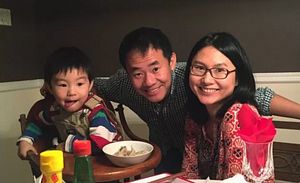On August 17, Princeton University issued a statement revealing that Iran had denied the appeal of Xiyue Wang, the Chinese American graduate student who was sentenced to 10 years in jail on spying charges. Princeton continues to support Wang, arguing his innocence. At the same time, Wang’s wife, who is a Chinese citizen, also called for Wang’s immediate release. However, none of their voices have caught much public attention either in China or America, so far.
As The Diplomat reported, on July 16, Iranian authorities announced that Wang, 37, was sentenced to jail for 10 years for involvement “in the infiltration project.” Iran claimed that Wang acquired 4,500 pages of the country’s highly confidential archives for U.S. and British institutions including the U.S. State Department, Princeton University, the Harvard Kennedy School, and the British Institute of Persian Studies. Immediately after the announcement, the Chinese foreign ministry declared that Wang “does not have Chinese nationality.”
In the university’s latest statement, Princeton denied that Wang had ever been “involved in any political activities or connected to any government agencies.” Princeton explained that Wang, simply a PhD student conducting historical research, went to Iran “solely to study Farsi and to examine historical documents from the late 19th and early 20th centuries.” In addition, Wang did describe his research plans “in advance to the Iranian authorities and the libraries and archives he planned to visit.”
In terms of the charges against Wang, except the Iranian announcement, neither Wang’s family nor the university has ever seen “the indictment, records of the trial proceedings or the verdict,” said Princenton.
Princeton also revealed that the U.S. authorities did try to provide support to Wang while in prison:
Switzerland represents U.S. interests in Iran and Mr. Wang has had four consular visits by the Swiss embassy since his confinement. Also, he has been permitted to make phone calls to his wife on an almost weekly basis and has had several visits from his attorney. However, it has been 15 months since Mr. Wang last saw his wife or his four-year-old son.
Meanwhile, Wang’s wife, Hua Qu, published a statement, calling for her husband’s immediate release. She said Wang “had received approval necessary from the Iranian government to carry out research in Iran. “ Qu and her son, who are both Chinese citizens, haven’t seen Wang for more than a year.
Princeton disclosed that the university and Wang’s family kept Wang’s imprisonment confidential before is due to recommendation that publicity would likely impede efforts to secure Wang’s release. The latest public statements issued by both Princeton and Wang’s wife show that they have reached a state of despair. To make the matter worse, few Chinese netizens have shown sympathy toward Wang.

































